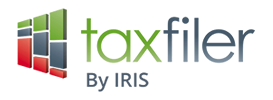Government to simplify collection of high income child benefit charge
The Government is planning to collect the charge via PAYE instead of self-assessment. How will this work, and what does it mean for you?

In a recent announcement it was confirmed that changes will be made to simplify the collection/payment of the high income child benefit charge (HICBC). Currently, those liable to pay the charge must register for self-assessment and pay the HICBC through their tax return each year. There have been many tribunal cases concerning the HICBC recently, largely due to the lack of awareness of the rules despite them being introduced a decade ago. Those that failed to complete tax returns have been stung with penalties for not completing a tax return in addition to their HICBC arrears.
It is hoped that by collecting the charge (tax) via PAYE, the administration will be reduced for both HMRC and the taxpayer. Removing the requirement to complete a tax return will surely be welcomed, especially since it has been acknowledged that those who only pay taxes via PAYE are unlikely to be aware of their obligations. It does of course accelerate the payment of tax to HMRC too.
However, collecting tax for additional items via a PAYE code has never been a perfect system, with adjustments sometimes needed after the end of the tax year. For instance, an individual could be earning over £50,000 and in theory be subject to the HICBC, but, if they make gift aid donations or personal pension contributions, they may fall below the threshold. Without the benefit of a self-assessment tax return, the onus will be placed on the taxpayer to check that the PAYE deduction is in fact correct, and to contact HMRC for an adjustment.
Related Topics
-
HMRC updates guidance for claiming new allowance
Qualifying expenditure on plant and machinery can qualify for a 40% first-year allowance from 1 January 2026. HMRC has now updated its guidance to help make claims. What do you need to do?
-
Get ready for Making Tax Digital for Income Tax
If you’re one of the (un)lucky individuals who need to join Making Tax Digital for Income Tax (MTD IT) from 6 April 2026, you probably know that this involves submitting regular, digital records to HMRC. But what do you need to do to prepare?
-
CT61









 This website uses both its own and third-party cookies to analyze our services and navigation on our website in order to improve its contents (analytical purposes: measure visits and sources of web traffic). The legal basis is the consent of the user, except in the case of basic cookies, which are essential to navigate this website.
This website uses both its own and third-party cookies to analyze our services and navigation on our website in order to improve its contents (analytical purposes: measure visits and sources of web traffic). The legal basis is the consent of the user, except in the case of basic cookies, which are essential to navigate this website.